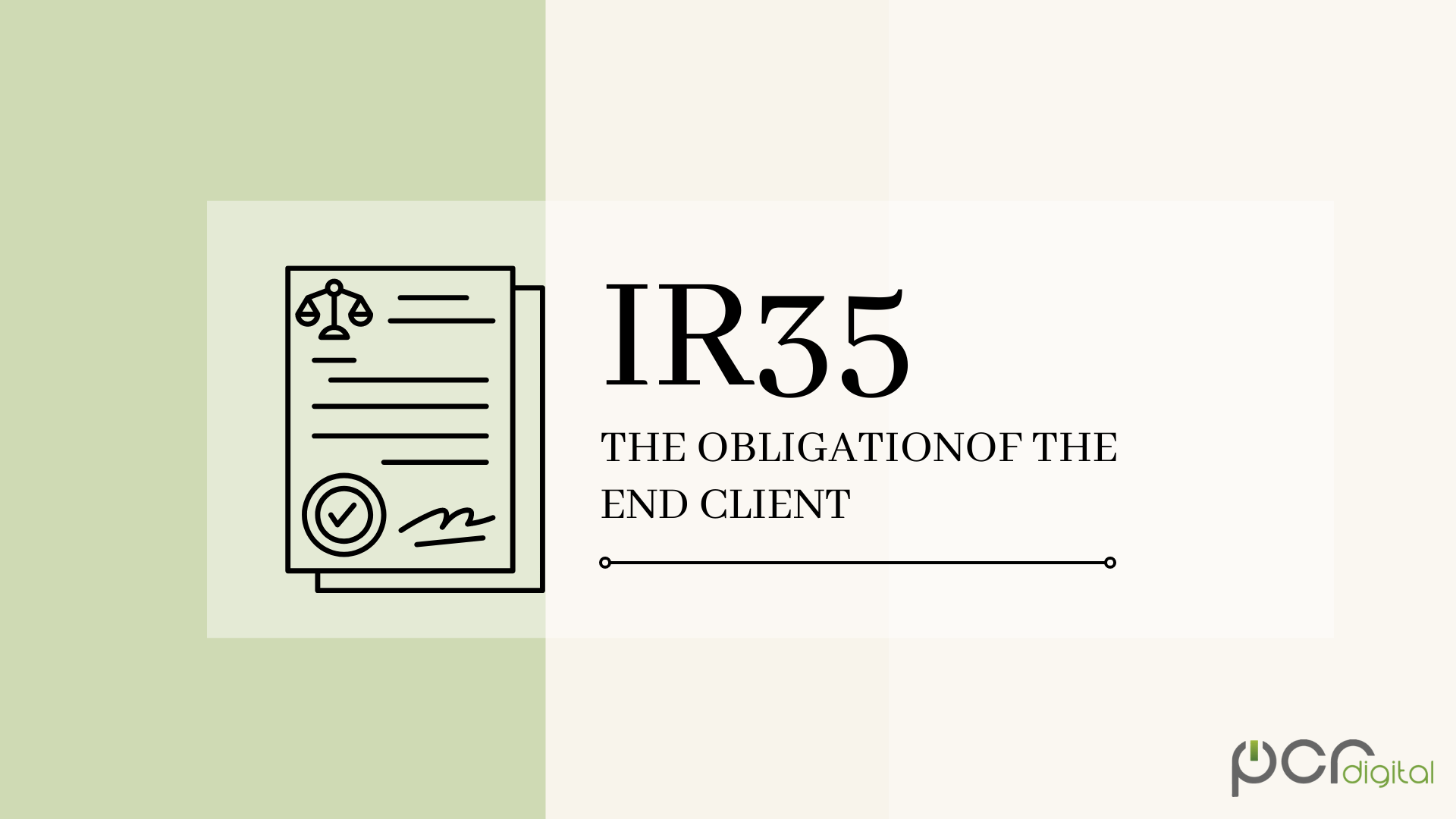What do we know about IR35 so far? The obligation of the end client

Part 1: the obligation of the end client
Last week Parasol Group hosted an IR35 Masterclass for all of their recruitment agency partners. Although it’s really difficult to say what impact IR35 will have in the private sector, as none of the legislation has been passed yet, we thought we’d summarise what we’ve learnt so far in terms of the end client’s obligation.
How will IR35 affect you as a client?
The responsibility of deciding whether a contract role is inside or outside IR35 lies with the end client. There is no way around this and the client must comply with this. Client’s can use the ‘CEST’ tool (HMRC’s online tool for determining a workers’ employment status for tax purposes) to help them decide whether a contract sits within IR35 although this tool has been known to have its flaws as evidenced within the public sector.
There are three key areas that a client must consider when deciding whether a limited company contractor is inside or outside IR35.
- Control – is the person under the direct control of the client? Truly self-employed people will have more influence over the way they decide to complete their work. On the other hand, an employee (or person acting as an employee) will be under the direct supervision and control of the employer.
- Substitution – can the services by substituted by someone else in the limited company? Where an employee provides his or her personal services to a client, a business should be able to provide its services as a business, rather than the exclusive services of one individual
- Mutuality of Obligation – are the services provided by the limited company for a specific task with no further expectation of additional work being provided after the task has been completed? A contract that is renewed on multiple occasions or a ‘rolling’ contract could indicate ‘employment’ as HMRC have argued that “where work is regularly offered [by the Client] and accepted [by the Ltd company contractor] over a period of time a continuous contract of employment may be created”.
Within the public sector, HMRC have said that end clients must take ‘reasonable care’ to come up with their decision for each contractor. This is very important as, if HMRC were to determine that the wrong decision had been made, they would look as to whether the end client had used ‘reasonable care’ to make their decision. Reasonable care could include not only using the CEST tool (although this is not a legal obligation) but whether the individual using the CEST tool and making the final decision has received sufficient training.
What is our advice?
Our advice for all businesses that will be affected by IR35 would be to start looking at this now and implementing new processes as soon as possible:
- Look at all of your existing contractors – use your new processes to decide if they fall inside or outside of IR35 and will any of them be in place on April 6th 2020?
- Get in contact with your recruiters – work with them and explain how your new processes will work. Will it affect any existing contractors? How will you advise them of the status of a role in the future?
- Educate all the hiring managers across the business
- Look at budgets and anticipate rate increases
Some public sector businesses took the decision that all contracts would fall inside of IR35 – this was not the point of the legislation and not what the government intends for the private sector so it really will be worth you considering each area of your business and the sort of contractors who work there. For example, you would not want a blanket decision particularly if you have contractors who are needed just for project work, who use their own equipment for the job and are treated like an independent contractor.
If you would like to speak to us about IR35 and how it may impact you then feel free to contact us.